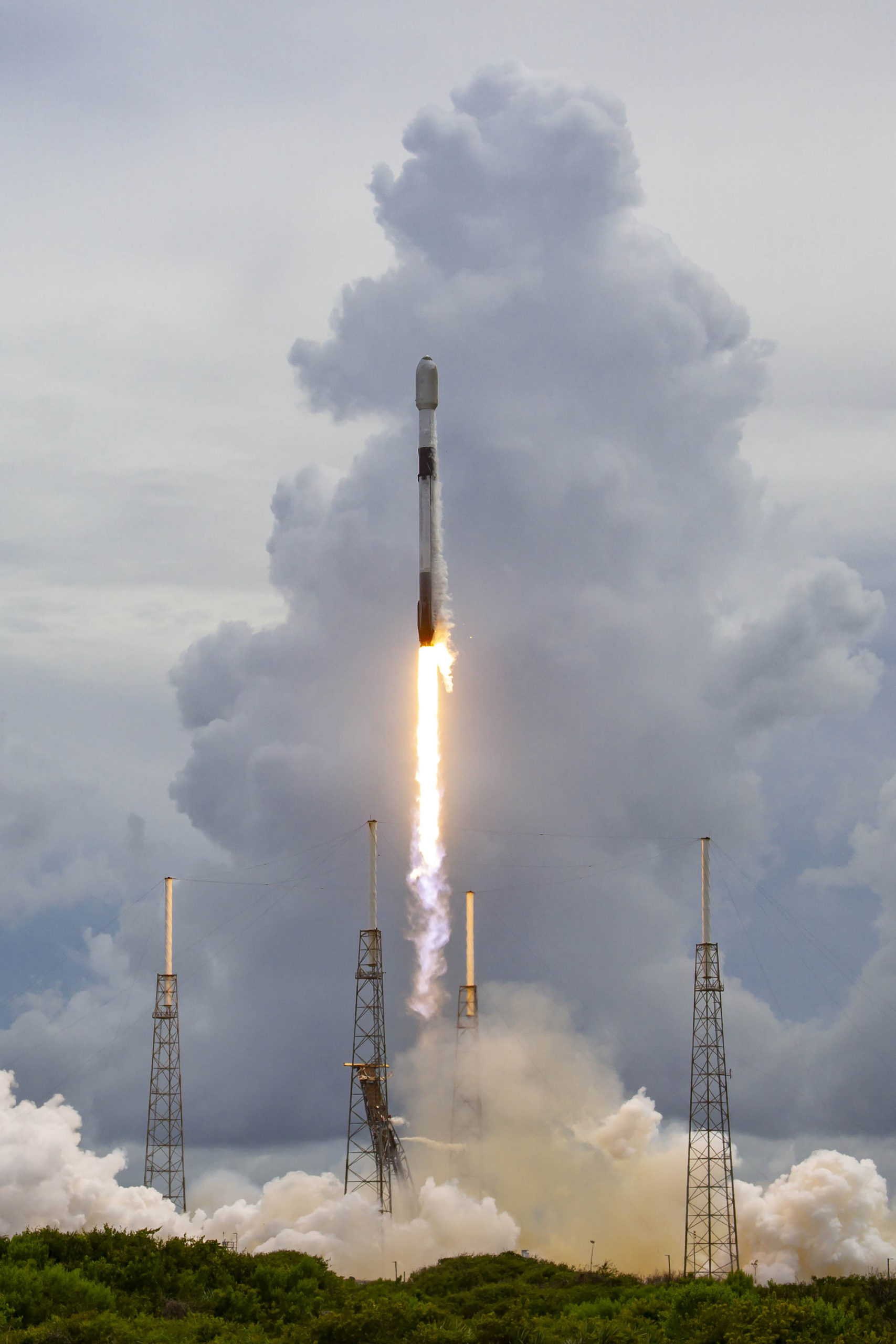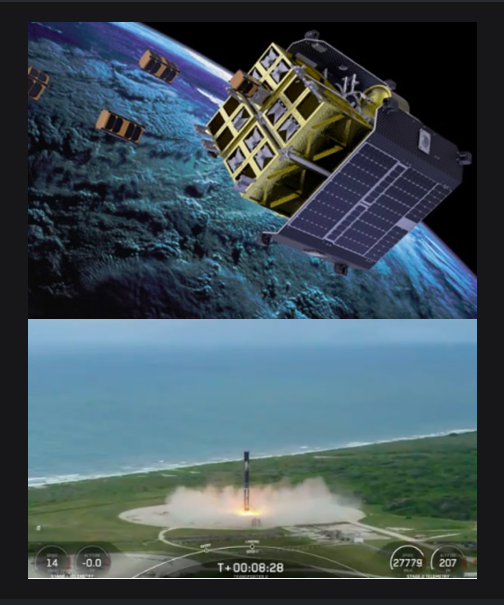The satellite platform lifted off from Cape Canaveral aboard the SpaceX’s Transporter-2 mission carrying to space six satellites and 12 payloads from fourteen different nationalities.
D-Orbit, a leader in the space logistics and orbital transportation industry, announced the successful launch of another ION Satellite Carrier (ION), its proprietary orbital transportation vehicle.
ION lifted off on June 30, 2021, at 9:31 pm CEST, atop a SpaceX Falcon 9 rocket from the Space Launch Complex 40 (SLC-40) at Cape Canaveral Space Force Station (CCSFS), Florida. On the same day, 60 minutes after liftoff, the vehicle was successfully deployed into a 500 km Sun synchronous orbit (SSO).
ION SCV 003 will deploy six satellites into distinct orbits and perform the in-orbit demonstration of 12 hosted payloads1. The mission serves clients from 14 different nationalities and brings the total number of payloads launched by D-Orbit up to 63.
D-Orbit’s CEO Luca Rossettini said this is D-Orbit’s third mission in less than nine months, and the incoming fourth mission is already fully booked.
“The pace at which we’re moving is a true testament to the economic benefits delivered to satellite operators and space companies leveraging space logistics’ services. I’m proud of what we have accomplished so far, thanks to the extraordinary skills and dedication of our team, and excited to witness our contribution to the new space sector as our company grows, and our technology keeps pushing the envelope of what is possible,” said Luca Rossettini.
ION Satellite Carrier is a space cargo vehicle designed, manufactured, and operated by D-Orbit. ION is able to accommodate multiple satellites, transport them into space, perform orbital manoeuvres, and release them precisely into independent orbital slots. ION’s unique integrated capabilities also enable the spacecraft to perform in-orbit demonstration (IOD) services for third-party hosted payloads.
ION SCV 003 serves a wide range of international clients, like the Spanish Elecnor Deimos, the Bulgarian EnduroSat, and the Kuwaiti Orbital Space, which will launch the country’s first radio amateur satellite. Also on board, under contract with ISILAUNCH and integrated into a QuadPack from Dutch satellite manufacturer ISISPACE, are Finnish Reaktor Space Lab, Marshall Intech Technology from UAE, and the Royal Thai Airforce.

The mission is about to enter the launch and early orbit phase (LEOP) during which mission controllers will perform a series of health check procedures in preparation for the operational phase, which will start with the deployment of the satellites. ION will deliver each satellite into a distinct orbit following a highly customized plan that defines the moment of release, and the direction and speed of ejection of each spacecraft.
After the conclusion of the deployment phase, WILD RIDE will proceed with the in-orbit demonstration of LaserCube, an optical communication device from the Italian-based company Stellar Project, and the testing of Nebula, an on-demand, on-orbit cloud computing and data storage service at the core of D-Orbit’s upcoming advanced services.
The first iteration of Nebula, which features an intelligent automation SpaceCloud iX5-100 radiation tolerant computing module by specialist Unibap, will demonstrate a range of innovative applications for advanced geospatial Earth Observation (EO) and Space Surveillance and Tracking (SST) applications using sophisticated, Artificial Intelligence/Machine Learning (AI/ML) algorithms for extremely low-latency decision support.
The experiments will be conducted in collaboration with commercial partners like the video compression techniques industry specialist V-Nova, and the AI research accelerator Frontier Development Lab, a public / private research lab run by Trillium Technologies in partnership with the University of Oxford and supported by ESA.
A series of organizations, among which Enea AB, SaraniaSat Inc, 12G Flight Systems, and Ubotica Technologies, and ESA is involved in this phase of the mission to further test the capabilities of the cloud ecosystem and its applications.
Finally, ION will enter the decommissioning phase through the testing of ADEO-N2, a small 1U-size deorbit sail subsystem, developed by the German space structures company HPS, that will lead to a faster, residue-free incineration of ION upon re-entry.
The mission will also feature a SETI (Search for Extraterrestrial Intelligence) experiment in collaboration with media artist Daniela de Paulis and INAF (Istituto Nazionale di Astrofisica).
The experiment, which investigates the possibility to communicate with other kinds of life in the universe, consists in the transmission of simulated alien messages to be received and decoded by radio telescopes worldwide. While celebrating the beginning of the new mission, the team is already preparing for the next one, scheduled for December 2021, and already fully booked.
About D-Orbit
D-Orbit is a market leader in the space logistics and transportation services industry with a track record of space-proven technologies and successful missions.
Founded in 2011, before the dawn of the New Space market, D-Orbit is the first company addressing the logistics needs of the space market.
ION Satellite Carrier, for example, is a space vehicle that can transport satellites in orbit and release them individually into distinct orbital slots, reducing the time from launch to operations by up to 85% and the launch costs of an entire satellite constellation by up to 40%. ION can also accommodate multiple third-party payloads like innovative technologies developed by startups, experiments from research entities, and instruments from traditional space companies requiring a test in orbit.
D-Orbit is a space infrastructure pioneer with offices in Italy, Portugal, UK, and the US; its commitment to pursuing business models that are profitable, friendly for the environment, and socially beneficial, led to D-Orbit becoming the first certified B-Corp space company in the world.




